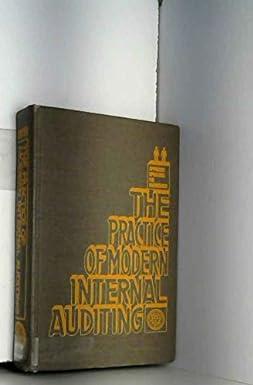Question
Dorsey Company manufactures three products from a common input in a joint processing operation. Joint processing costs up to the split-off point total $300,000 per
Dorsey Company manufactures three products from a common input in a joint processing operation. Joint processing costs up to the split-off point total $300,000 per quarter. For financial reporting purposes, the company allocates these costs to the joint products on the basis of their relative sales value at the split-off point. Unit selling prices and total output at the split-off point are as follows:
| Product | Selling Price | Quarterly Output | ||
|---|---|---|---|---|
| A | $ 10.00 | per pound | 11,000 | pounds |
| B | $ 4.00 | per pound | 17,300 | pounds |
| C | $ 16.00 | per gallon | 2,200 | gallons |
Each product can be processed further after the split-off point. Additional processing requires no special facilities. The additional processing costs (per quarter) and unit selling prices after further processing are given below:
| Product | Additional Processing Costs | Selling Price | |
|---|---|---|---|
| A | $ 48,250 | $ 14.10 | per pound |
| B | $ 68,055 | $ 9.10 | per pound |
| C | $ 23,780 | $ 23.10 | per gallon |
Required:
What is the financial advantage (disadvantage) of further processing each of the three products beyond the split-off point?
Based on your analysis in requirement 1, which product or products should be sold at the split-off point and which product or products should be processed further?
What is the financial advantage (disadvantage) of further processing each of the three products beyond the split-off point?
Note: Enter "disadvantages" as a negative value.
|
Step by Step Solution
There are 3 Steps involved in it
Step: 1

Get Instant Access to Expert-Tailored Solutions
See step-by-step solutions with expert insights and AI powered tools for academic success
Step: 2

Step: 3

Ace Your Homework with AI
Get the answers you need in no time with our AI-driven, step-by-step assistance
Get Started


